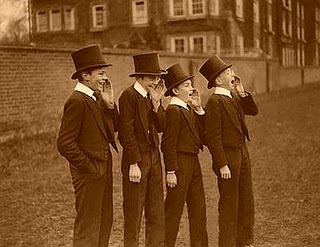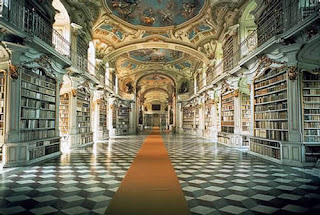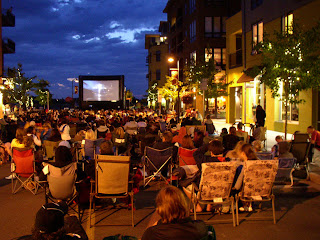Pathways to Participation - Elite Pedagogy and Revolution
It is a sad fact that much of what we do in our younger years at school acts as barrier to our future confidence and enjoyment. The main reason is that most people are made to feel that they are failures, or fall short of the required standards.
The component of play, spontaneity, and expression, are beaten out of us with the rigour of rules and traditions; a culture of compulsion prevails together with a morbid attraction to examination and assessment regimes. Our children suffer anxiety and stress; they become miserable and unresponsive. Retreating to private worlds, they seldom gain the confidence or the creativity to comprehend their suffering; the system's ultimate victory is that the children are unable to construct meaningful forms of rebellion.
Our obsession with competition, elitism, skills' acquisition, specialisation, and a functional / instrumental approach to learning plays a major role in inhibiting the majority of individuals from participation and creative growth.
The markers of success and failure are perhaps most tightly regulated in sport, with its emphasis on a competitive ethos and the sanctification of winning. As a child lacking physical coordination I learned in seven or more unhappy years a lifelong dislike for football. Swimming and running lost their pleasure for me because an early natural proficiency catapulted me into the pressure of tournaments. It does not surprise me that we have a nation that has abandoned itself to obesity and physical lethargy. Sport for all is an empty rallying cry when the reality is a culture of individual excellence fatally geared to the celebration of the proficient minority.
But the barriers to participation are everywhere. Music education typically entails learning to play a classical instrument; reading music; or, learning to sing like an X-factor finalist. How few are the children who will hear the words “You Nailed IT” from a chorus of celebrity judges! In fact the success of such shows is determined by our armchair collusion in the laughability of the majority of the failed participants. What happened to the full-throated ease of collective wailing? the solo in the bath?
Yet the more democratic and open exploration of fundamental sound worlds, from digital acousmatic competition, to DJ-ing and sampling, are not core curriculum for all children. At an even more foundational level, the ability to listen - to hear sound worlds – is lost in the cacophony of shouting, order, chaos, and classroom discipline. A spiritual renaissance is needed for us to re-discover the natural ability to listen, and to challenge the noise pollution of our contemporary environment.
In drama the emphasis will be on acting skills; learning scripts; a preparation for theatrical life which will not be the destiny of the majority of the class of children. How sad it is that the techniques of applied drama are not employed across the curriculum – as we see in process drama, or the techniques associated with “Mantle of the Expert”. Tableaux, re-enactment, role play, hot seating, expert panels, improvisation have a dramatic component that exceeds the subject field and can have astonishing therapeutic and developmental value. Applied drama has immense potential, but it is driven to the margins with the result that few children are equipped with the capacity to explore, negotiate and express which is fundamental to social life and political culture. Empty slogans about citizenship and civil society will not fill the vacuum.

In the approaches to texts – reading and writing – the emphasis is weighted towards historical literary and critical analysis of the canon. Moreover, the primacy of narrow grammatical approaches and compositional exercises is depressing. A free-wheeling creative play, and an opportunity for experimentation, is seldom encountered. Writing and reading means books rather than the wider manifestations of text, and textual crossings and encounters experienced with other fields, such as rapping, texting, and tweeting.
There is a whole range of additional subject fields more narrowly geared to ‘employability’ rather than creativity and the capacity for adaptation (what the future society, I would argue, actually needs).
The underlying problem is that the educational system in its curriculum content, its modes of delivery, and its assessment formalities, is geared to the needs of the high- achievers, the Olympic sports men and women, and the University entrants, who in their turn will become - at a further level of elite selection - the future coaches, trainers, teachers and academics.
Sadly, it is the same narrow professional class which, having blossomed in the prevailing system, proceed to perpetrate comprehensive abuse on a new cohort of students, in what amounts to a recurring cycle of exclusion and mass disenchantment.



Comments
Post a Comment
My blog posts are exploratory rather than finished works. You are invited to add any comments below...